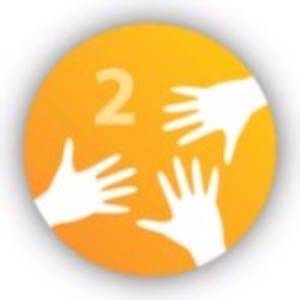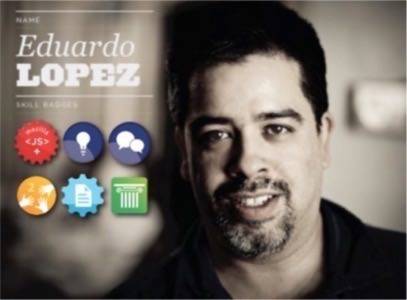In a world where eligible candidates for Web-related positions range from 14 to 81 years of age, and thousands worldwide may compete for an open position or contract, how can an employer expect to screen them all? In the old days, people used degrees; but in an environment where today’s skills become tomorrow’s bird cage liners, major players in Web development are suggesting the old system may already be outmoded.

A system proposed earlier this year by the Mozilla Foundation will be the basis of a global competition. As much as $2 million in grants from Mozilla and the MacArthur Foundation will be awarded to interested parties, in amounts ranging up to $200,000 apiece, who can propose a technical infrastructure and/or physical appearance for what Mozilla describes as a standard system of verified icons for representing individuals’ Web developmental skills.
“Imagine… a world where your skills and competencies were captured more granularly across many different contexts, were collected and associated with your online identity and could be displayed to key stakeholders to demonstrate your capacities,” reads the latest working paper from Mozilla for an Open Badges framework (PDF available here). “In this ideal world, learning would be connected across formal and informal learning contexts, and you could discover relevant opportunities and craft your own learning pathways at your own pace, based on your own interests and learning styles. Whether it was through discussion with peers, structured classes or workplace experience, you could collect evidence of skill development, including new or often neglected skills such as social skills or digital literacies. This evidence could be acquired automatically from your interactions with online content or peers, explicitly sought out through various assessments or based on nominations or endorsements from peers or colleagues. This would allow you to present a more complete picture of your skills and competencies to various audiences, including potential employers, mentors, peers and collaborators.”

The picture Mozilla paints for us is of a diverse environment of educational providers including online courses and after-school programs, which would be authorized to provide icon-like badges to individuals based on criteria they decide. Those badges could then be displayed on Facebook pages, on Web sites (like the mockup created by Mozilla above), and in resumes.
As a Mozilla spokesperson told RWW this afternoon, “the badge itself is more than a static image or button. Its value comes from the information or metadata attached to it.” The plan is for the metadata for the badge file to contain the name and authentication of its issuing party, the date of issue, the way the badge was earned, and links to URIs that describe the works leading up to the badge being earned. There will be, the spokesperson said, an “implicit validation system” that reduces the chances of anyone counterfeiting or illicitly using a badge or something that looks like a badge.
But it’s this system, among other components, that will be the subject of Mozilla’s and MacArthur’s Digital Media+ Learning Competition. For Stage 2 of the competition, applications will be accepted between December 12 and January 12, for grants ranging from $10,000 to $200,000. “Fully developed badge systems will include a badge or set of badges, assessments and the technology required to issue, track, and measure performance,” read the contest specifications.

















